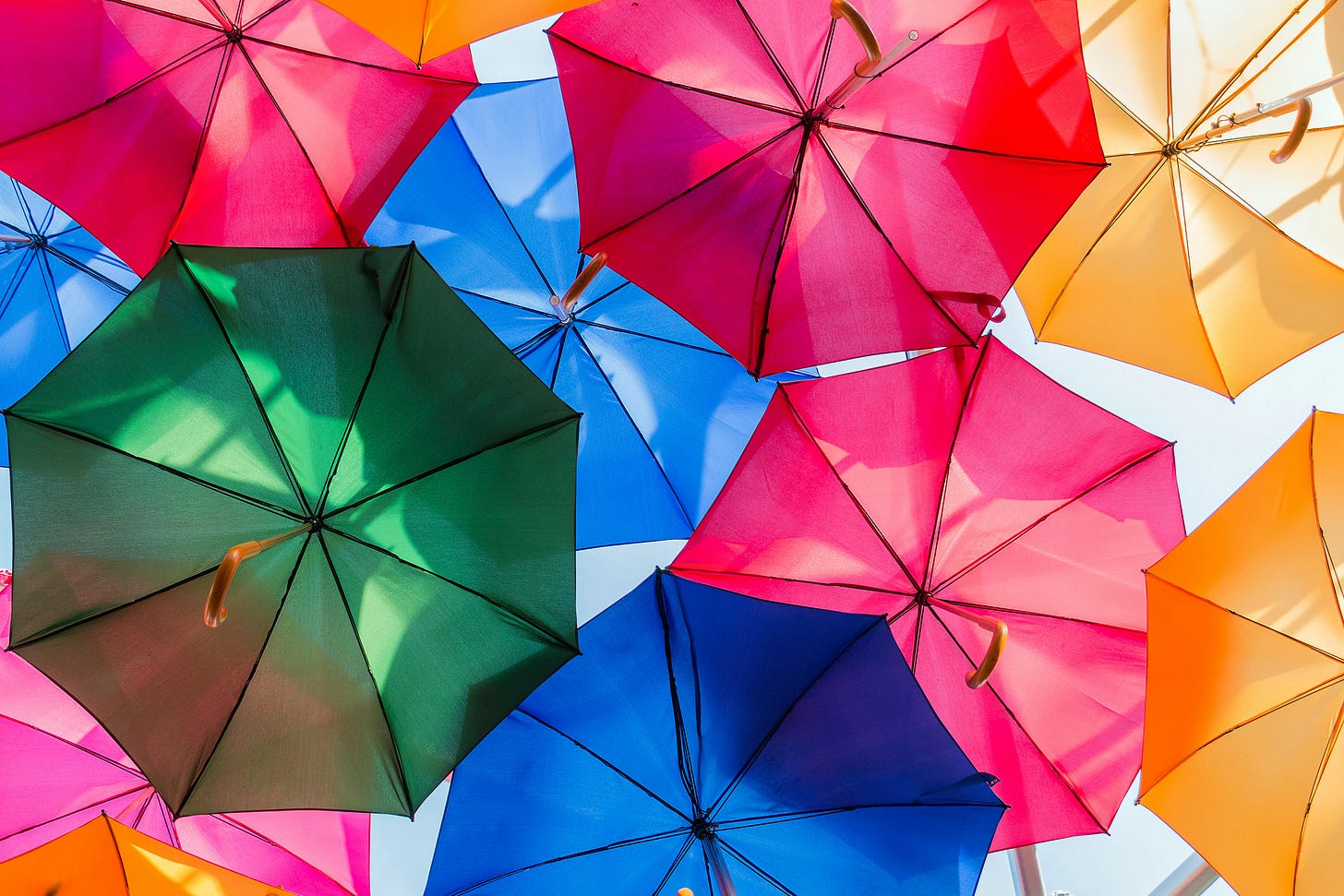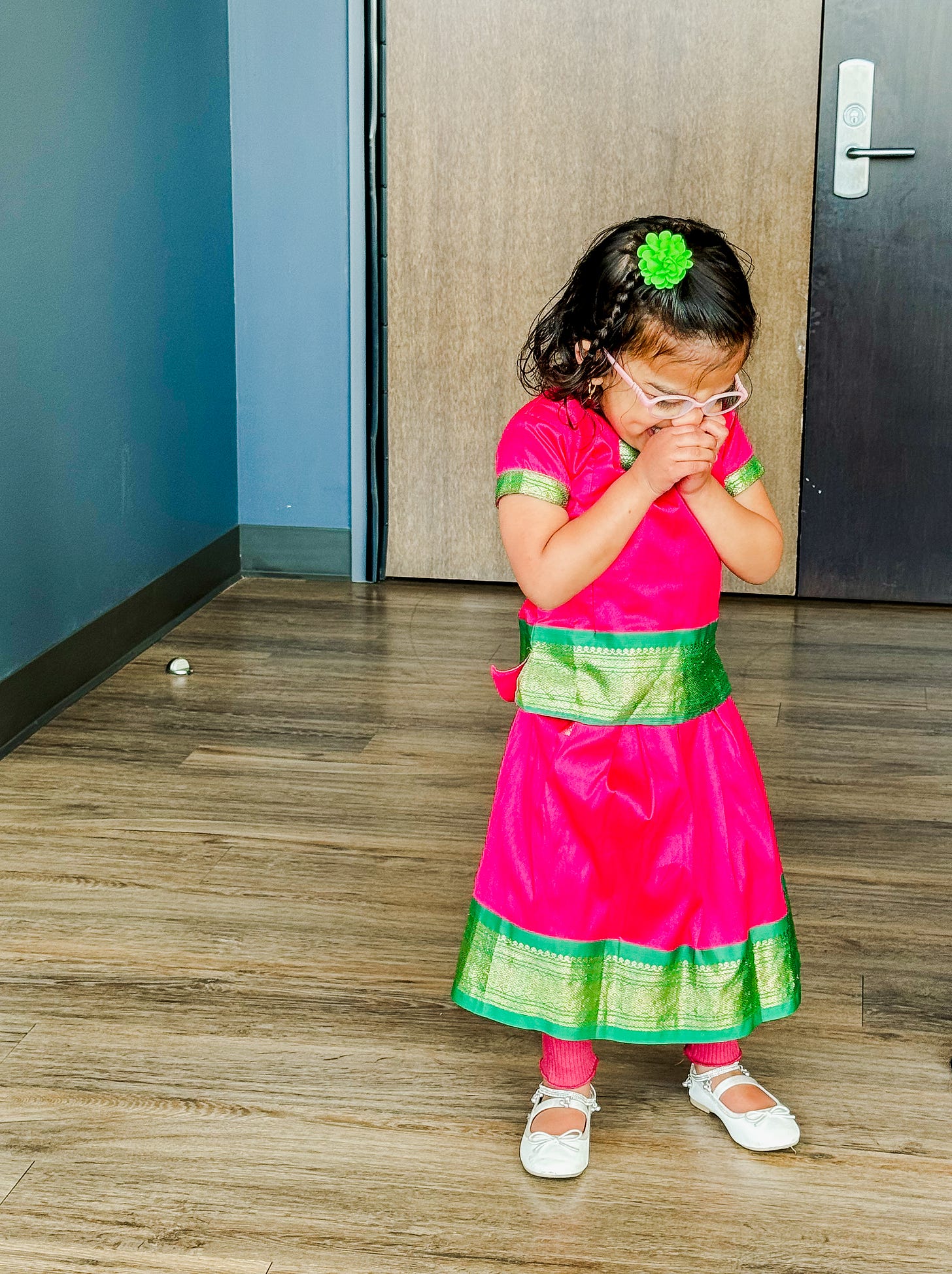
“Yeah, but you’re not Asian.” a well-meaning Filipina friend once told me in sixth grade.
I took that in with some resistance and confusion. After all, our skin tones and hair textures were different, yet when I looked at the map displaying the continents, it told me I did belong to this giant umbrella of people. However, that day this ongoing question of “Where do I belong?” found a tug from a new, different angle.
More than searching for my place as a daughter of Indian immigrants navigating different worlds, it wasn’t just if I could be enough of an American enough, now I added, could I be enough of an Asian American?
As we enter the month May, for those of us in the States it means it’s some version of Asian American Heritage Month. Like many other heritage months, fitting in so many different types of people stemming from a whole continent is impossible.
While this month was first acknowledged in the early 90s, it wasn’t until much later in my life that I heard it acknowledged more. And I can’t help but wonder, is this month for me too? Could I fit under this umbrella of Asian Americans?
At our ethnically diverse elementary school, I didn’t feel like a minority, but I also knew only certain kids would accept my mom’s accent or the way our house looked without judgement. I found myself a nomad. While many in our grade had specific pockets of friends, the spaces I tried to take up were scraps of fabric from anyone that would have me.
Holding my milk carton and my lunch tray, I floated between tables.
I connected with the other Indian and Pakistani girls during lunch, but sometimes found myself sitting with other girls who were white or AAPI.
Some of my friends stuck with those who looked like them, and in high school this varied even more. Even if we did look alike, we were then divided by the classes we took or how Indian you were. And for whatever reason, I always wanted a bigger umbrella.
When I was in college, to feel a part of our mostly Korean-American campus church proved a great challenge. I thought we’d all get along because many of us were children of immigrants, raised in the Church, used to navigating two worlds. Instead, I found an invisible wall built by references made in our small group no one would explain to me, interactions where people would start talking in their familial language no one would translate to me, and even the food we ate together at retreats. (Though the love I now carry for Korean food may be the greatest gift this church gave me…)
Where did I belong? Some of my friends just stuck to other Indians at that point. It was easier, safer, we understood each other better. I always felt myself leaning in to these spaces that differed yet often bounced back like a bungee cord because I did not belong.
As we enter this month, you will hear some variations of this heritage month: APIDA, AAPI, AANPHI, etc. In all of these imperfect attempts, someone is included at the cost of someone else’s erasure.
Dr. Kevin Nadal writes, “Previously, it was common for people to use Asian American only, which excluded Pacific Islander experiences. Some people have used Asian Pacific American, but many Pacific Islanders disliked this term because they didn't consider themselves American, especially for those residing outside of the continental United States. Some South Asians add Asian Pacific Islander Desi American (APIDA) to connote that South Asian experiences are often excluded when using AA or AAPI alone... Some Pacific Islanders will remove themselves from the umbrella altogether and identify only as Pacific Islander, Pasifikans, or some other term".
It seems we all want to be seen, belong, and have a seat at a bigger table. And sometimes that causes us to forego considering the needs of other marginalized groups.
When I process the reality that an Asian-American group supported some White conservatives in dismissing affirmative action, I have to ask, do I even want to be a part of this group?
We’ve received privileges in America for being a “model minority” and live such white-adjacent lives that our assimilation and silence perpetuates the greater problem of racial injustice in this country.
As an adult raising two little girls, I want them to embrace their skin as much as I want them to love those around them. I want them to be truth tellers.
As I approach APIDA month, as I currently call it, it’s messy. But embracing my Asianness, my South Asian/Desi-ness, it’s all part of the journey in finding my way back to who I am.
Author and poet
writes in her book, Tell me the Dream Again, “My journey of embracing my ethnic and cultural identity has led me to Jesus and deepened my longing for the way things are meant to be.”Perhaps this desire for the bigger umbrella, for us all to belong, it is this longing for what is meant to be. I don’t have to figure it all out. I take my complicated feelings and try to embrace the good and work towards better.
Dear Little Brown Girl,
May you be a truth teller.
May you leverage your privilege for the sake of others.
May you stand up when it’s easier to sit in the background.
May you take up space.
May you know amidst the complexities of your Asianness,
God created you with intention, purpose, and in his image.
And it is very good.
How will you celebrate?
Consider the books you read, the shows you watch, the movies you pay money to see, or the people you follow on social media. How many of them fall under this umbrella of APIDA folk? We all have much to learn from these voices.
Here are some that continue to form me
Tasha Jun - Her book named some of the deepest things in my soul I didn’t even know were there and brought me to a journey of picking those things up to find myself more fully.
Mitali Perkins - Mitali was one of the first South Asian authors who paved the way for so many after. Her books tackle so much of the in-between life that I’m so glad to pass onto my little girls now.
- - This woman champions others, creates spaces for women of color, and writes books for children that teach lessons and help them feel seen.
- wrote The Way of Chai: Recipes for a Meaningful Life. A beautifully written book with history, chai recipes, theology, and how life really is this reflection of the chaimaking process. My mom actually prefers my chai now thanks to his recipes — if you. have a South Asian immigrant mom, you know that’s a big deal.
Kathy Khang - Her honesty and desire to not cater to majority view continues to challenge me to take up space and know it’s okay to do things a little different. She’s also written two amazing books you can find out more on her site or even on social. Her book, Loving Disagreement may be what some or all of you need as we approach election season.
- - This woman comes out with her first book next month—PREORDER IT TODAY. Jenai is a voice for the voiceless, taking back her story and showing others what healing can look like after church trauma. She’s also my kind of introvert, so if you’re here, you’ll probably appreciate her as well. :)
All of these people brought life, healing, and delight through their writing. I invite you to check them out and pass it onto others. If you have someone to add to the list, let’s celebrate this month by adding more in the comments.
Fellowship Update
I’m in month two of my writer’s fellowship with Missio Alliance. It’s been a joy to sit with folks from all over the continent, journey through spiritual formation, and even get to work through some writing together already.
An Ask..
As someone who reads and follows my work, I want to see if you would consider partnering with me financially to help with the investment in this cohort for meetings, retreat, and books we’re reading together. The total amount is $980 or $140 per month, but any little bit will help.
You can help me fund this amount by either sending something through Venmo, Paypal, or doing a paid subscription to my Substack where I’ll take any amount and put it directly toward this collective. Thanks for considering!!




I love who you are, and all that you generously share here. Thank you for sharing and for how this sharing helps us all to be more of who we are as a community. Deeply grateful for your voice, Rachel.
Rachel thank you for sharing. This is such a good read. I tell ya that belonging we all seek is a journey and the more folks share their stories and journeys the more we can learn and grow. 💛